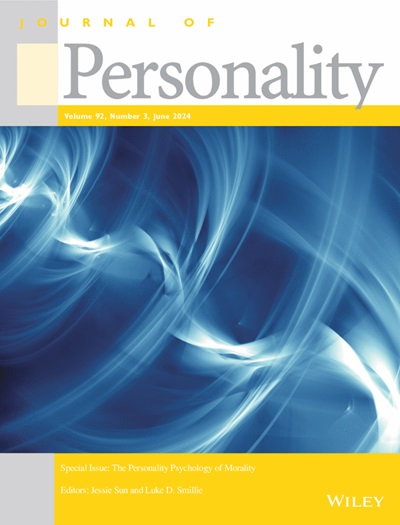Negative urgency as a state-level process
Abstract
Objective
Test whether global self-reports of urgency moderated the within-person associations of affect and impulsive behaviors.
Background
Negative urgency is a personality trait that is a risk factor for a range of psychopathology. Although it is assumed that global self-reports of urgency measure individual tendencies to act more impulsively in the face of negative emotions, evidence from ecological momentary assessment studies is mixed.
Method
In this Registered Report, we used ecological momentary assessment data from a large sample of young adults (n = 496, age 18–22, 5 surveys per day for 40 days).
Results
All forms of momentary impulsivity were impaired in moments when people reported more intense negative emotions, but global self-reports of urgency did not explain individual differences in this association. Moreover, averaged affective states, rather than specific dimensions, affective circumplex, or appraisals, best predicted impulsive states.
Conclusions
Results suggest that face-valid interpretations of global self-report of urgency are inaccurate, and it may be important to understand how some people come to understand themselves as high on urgency rather than assuming that people's self-reports of their motivations are accurate. Momentary experiences of emotions globally impact multiple weakly to moderately associated impulsive behaviors, and future research should seek to understand both when and for whom these associations are strongest.

 求助内容:
求助内容: 应助结果提醒方式:
应助结果提醒方式:


